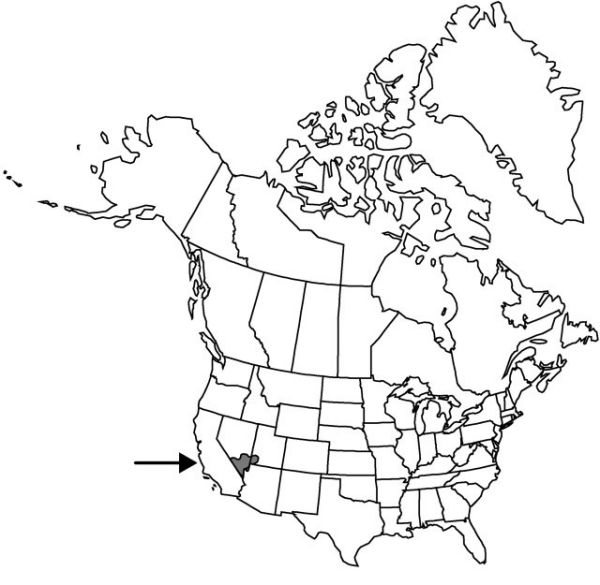Difference between revisions of "Sisyrinchium radicatum"
Bull. Torrey Bot. Club 28: 576. 1901.
FNA>Volume Importer |
imported>Volume Importer |
||
| (6 intermediate revisions by 2 users not shown) | |||
| Line 24: | Line 24: | ||
|distribution=Nev.;Utah. | |distribution=Nev.;Utah. | ||
|discussion=<p>Of conservation concern.</p><!-- | |discussion=<p>Of conservation concern.</p><!-- | ||
| − | --><p>Sisyrinchium radicatum has been confused with S. demissum: S. L. Welsh and G. Moore (1973) called all branched Sisyrinchium plants in Utah S. radicatum, while S. Goodrich and E. Neese (1986) called such plants S. demissum with S. radicatum a synonym. Sisyrinchium radicatum differs in having white or cartilaginous margins on the stem and a broad apex to the hyaline margin of the inner spathe; it is apparently restricted to the St. George–Las Vegas region, and is to be expected in the adjacent northwest corner of Arizona.</p> | + | --><p><i>Sisyrinchium radicatum</i> has been confused with <i>S. demissum</i>: S. L. Welsh and G. Moore (1973) called all branched <i>Sisyrinchium</i> plants in Utah <i>S. radicatum</i>, while S. Goodrich and E. Neese (1986) called such plants <i>S. demissum</i> with <i>S. radicatum</i> a synonym. <i>Sisyrinchium radicatum</i> differs in having white or cartilaginous margins on the stem and a broad apex to the hyaline margin of the inner spathe; it is apparently restricted to the St. George–Las Vegas region, and is to be expected in the adjacent northwest corner of Arizona.</p> |
|tables= | |tables= | ||
|references= | |references= | ||
| Line 33: | Line 33: | ||
-->{{#Taxon: | -->{{#Taxon: | ||
name=Sisyrinchium radicatum | name=Sisyrinchium radicatum | ||
| − | |||
|authority=E. P. Bicknell | |authority=E. P. Bicknell | ||
|rank=species | |rank=species | ||
| Line 48: | Line 47: | ||
|publication year=1901 | |publication year=1901 | ||
|special status= | |special status= | ||
| − | |source xml=https:// | + | |source xml=https://bitbucket.org/aafc-mbb/fna-data-curation/src/2e0870ddd59836b60bcf96646a41e87ea5a5943a/coarse_grained_fna_xml/V26/V26_735.xml |
|genus=Sisyrinchium | |genus=Sisyrinchium | ||
|species=Sisyrinchium radicatum | |species=Sisyrinchium radicatum | ||
Latest revision as of 21:16, 5 November 2020
Herbs, perennial, cespitose, pale olive green when dry, to 3.4 dm, rarely glaucous. Stems branched, with 1–2 nodes, 1.7–3.2 mm wide, glabrous, margins white or translucent-cartilaginous; first internode 11–41 cm, longer than leaves; distalmost node with 2 branches. Leaf blades glabrous, bases not persistent in fibrous tufts. Inflorescences borne singly; spathes green, obviously wider than supporting branch, glabrous, keels entire to denticulate; outer 14–18 mm, 3.8 mm shorter to 0.5 mm longer than inner, tapering evenly towards apex, basally connate 4–7 mm; inner with keel evenly curved to straight, hyaline margins 0.5–0.8 mm wide, apex abruptly broadened, ending 0.5–2.3 mm proximal to green apex. Flowers: tepals bluish violet, bases yellow; outer tepals elliptic to oblanceolate, 9–12 mm, apex rounded to slightly emarginate, aristate; filaments connate ± entirely, stipitate-glandular basally; ovary similar in color to foliage. Capsules beige to tan, globose, 4.3–6 mm; pedicel erect to ascending. Seeds globose to obconic, lacking obvious depression, 0.8–1.3 mm, rugulose. 2n = 32.
Phenology: Flowering late spring–mid summer.
Habitat: Moist, sometimes alkaline meadows, stream banks, borders of springs
Elevation: 600–1300 m
Discussion
Of conservation concern.
Sisyrinchium radicatum has been confused with S. demissum: S. L. Welsh and G. Moore (1973) called all branched Sisyrinchium plants in Utah S. radicatum, while S. Goodrich and E. Neese (1986) called such plants S. demissum with S. radicatum a synonym. Sisyrinchium radicatum differs in having white or cartilaginous margins on the stem and a broad apex to the hyaline margin of the inner spathe; it is apparently restricted to the St. George–Las Vegas region, and is to be expected in the adjacent northwest corner of Arizona.
Selected References
None.
